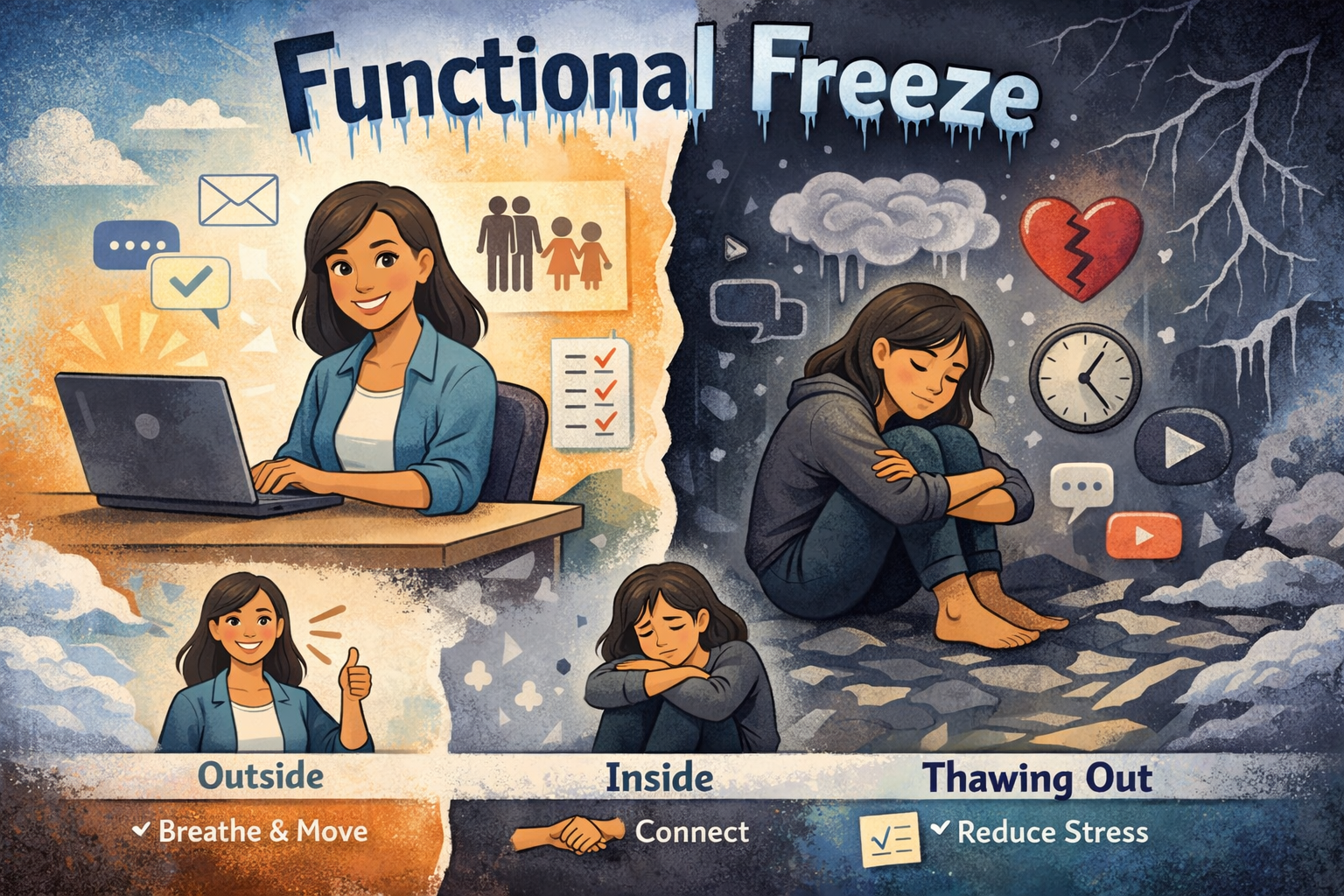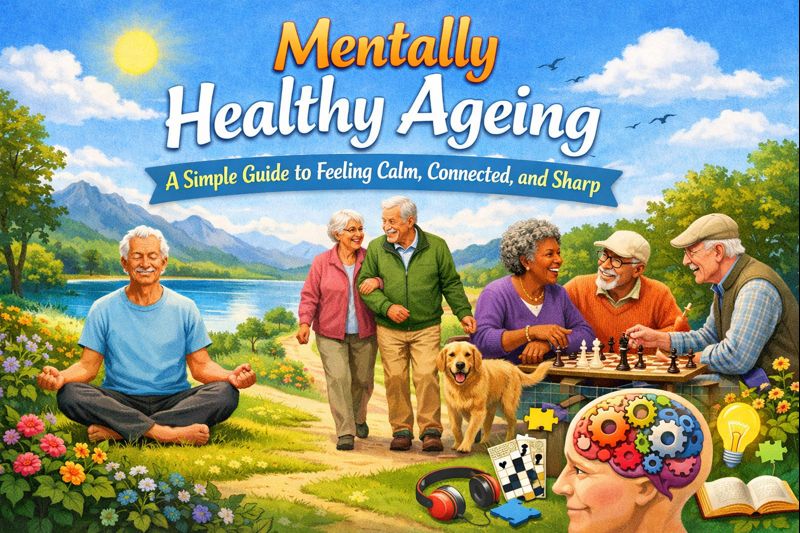In today’s fast-paced world, stress has become a common issue for many of us. Whether it’s work, relationships, or just daily life, the pressures we face can quickly pile up, leading to mental health challenges. Thankfully, there’s a simple and natural way to help manage stress and improve mental well-being: deep breathing.
It is well said, “Breathing is not just about staying alive, it’s about living fully.” – Thich Nhat Hanh. Deep breathing is a simple but powerful tool that can be used to improve your overall health and well-being. It is more than just a relaxing exercise; it’s a very effective tool for managing stress, reducing anxiety, and promoting better mental health. We can even say that deep breathing is like a mini-vacation for your mind and body. Let’s explore how this technique works and why it’s one of the most effective methods for stress management.
What is Deep Breathing?
Deep breathing, also known as diaphragmatic breathing or belly breathing, involves breathing slowly and deeply into your diaphragm rather than shallow breaths into your chest. This technique allows for full oxygen exchange, helping your body relax, calm your mind, and reduce stress.
Many people, when stressed, tend to take quick, shallow breaths. This can actually increase feelings of anxiety and tension. Deep breathing helps reverse this by encouraging your body’s natural relaxation response. There is a research study that establishes that “diaphragmatic breathing may be a useful intervention for reducing stress and anxiety, particularly in individuals with anxiety disorders.”This study, among others, suggests that deep breathing techniques can help regulate the body’s stress response, leading to decreased feelings of anxiety and improved overall mental well-being.
The Connection Between Deep Breathing and Mental Health
When you’re stressed or anxious, your body enters a “fight-or-flight” mode, which is a natural reaction to perceived danger. While this response is useful in real emergencies, it’s less helpful when the stress comes from day-to-day challenges. Prolonged stress can contribute to mental health issues like anxiety, depression, and burnout.
Deep breathing exercises help shift your body from that fight-or-flight mode into a more relaxed state. By slowing your heart rate, lowering your blood pressure, and calming your mind, deep breathing can significantly improve your mental health over time.
Proven Stress Management Techniques with Deep Breathing
Here are some easy and effective deep breathing techniques to help you manage stress and boost your mental well-being:
1. 4-7-8 Breathing Technique
This technique is great for calming anxiety and quieting the mind. Here’s how to do it:
- Sit or lie down in a comfortable position.
- Inhale deeply through your nose for 4 seconds.
- Hold your breath for 7 seconds.
- Exhale slowly through your mouth for 8 seconds.
- Repeat this cycle 4-5 times.
This method helps slow down your heart rate and encourages relaxation, making it a perfect choice for those moments when stress feels overwhelming.
2. Box Breathing (Square Breathing)
Box breathing is an easy and structured way to practice deep breathing. It’s often used by athletes and the military to maintain calm under pressure. Follow these steps:
- Inhale slowly through your nose for 4 seconds.
- Hold the breath for 4 seconds.
- Exhale slowly through your mouth for 4 seconds.
- Pause again for 4 seconds before starting the cycle over.
- Repeat the process for 5-10 minutes.
This technique is simple and effective for managing stress and promoting mental clarity.
3. Alternate Nostril Breathing (Nadi Shodhana)
Alternate nostril breathing is a calming and balancing practice that can reduce anxiety and improve focus. Here’s how it works:
- Sit comfortably and close your right nostril with your thumb.
- Inhale deeply through your left nostril.
- Close your left nostril with your finger and exhale through the right nostril.
- Inhale again through your right nostril.
- Switch sides, exhaling through the left nostril.
- Continue alternating for 5-10 minutes.
This method helps balance the brain’s two hemispheres and calms the nervous system, reducing stress and improving mental health.
The Science Behind Deep Breathing and Mental Health
Studies have shown that deep breathing can have a profound effect on both physical and mental health. By controlling your breath, you activate the parasympathetic nervous system, which is responsible for the body’s “rest and digest” functions. This helps counteract the effects of stress and anxiety by slowing your heart rate, lowering cortisol levels (the stress hormone), and promoting relaxation.
Research also suggests that regular practice of deep breathing exercises can improve mood, enhance focus, and lower the risk of mental health disorders. It’s a natural way to regain control over your emotions and create a sense of inner calm.
How to Incorporate Deep Breathing into Your Daily Life
One of the best things about deep breathing is that you can practice it anytime, anywhere. Here are some easy ways to integrate it into your daily routine:
- Morning Mindfulness: Start your day with 5 minutes of deep breathing to set a calm tone for the day ahead.
- Stressful Moments: Whenever you feel overwhelmed, take a few minutes to practice one of the breathing techniques mentioned above.
- Before Bed: Practice deep breathing before going to sleep to help unwind and ensure a more restful night.
Final Thoughts
Deep breathing can significantly transform both physical and mental health by enhancing oxygen flow to the brain and body, which reduces stress and promotes relaxation. It lowers blood pressure, improves lung capacity, and supports heart health. Mentally, deep breathing activates the parasympathetic nervous system, helping to alleviate anxiety, improve focus, and foster emotional balance. Regular practice can lead to long-term benefits for overall well-being. So, therefore, let’s start incorporating deep breathing exercises into your routine, and watch how can transform our mental health and overall well-being.














